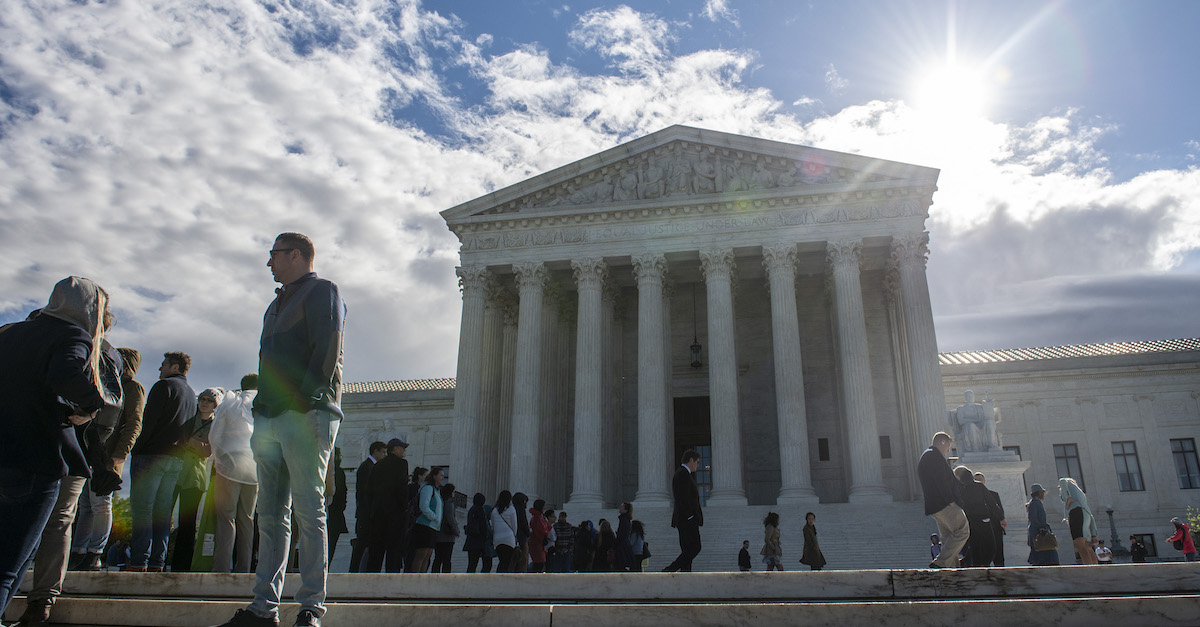
In late 2019, the Supreme Court will decide whether the Civil Rights Act of 1964 guarantees protections to transgender people in the workplace when it considers the case of R.G. & G.R. Harris Funeral Homes v. Equal Employment Opportunity Commission. The Supreme Court’s eventual ruling will significantly define the rights and protections, if any, that are afforded to these individuals in the workplace pursuant to the Act. Let’s walk through the context and the arguments.
In R.G., Aimee Stevens had presented as a man when she started her job in 2007. When she announced her intention to transition to a woman and to wear women’s clothing on the job, she was fired. In ruling in favor of Stevens, the United States Court of Appeals for the Sixth Circuit stated:
Discrimination against transgender people was barred by Title VII. It is analytically impossible to fire an employee based on that employee’s status as a transgender person without being motivated, at least in part, by the employee’s sex. Discrimination ‘because of sex’ inherently includes discrimination against employees because of a change in their sex.
According to the Equal Employment Opportunity Commission, Title VII of the Civil Rights Act of 1964 bans discrimination on the basis of race, color, religion, sex or national origin. What is notably absent from Title VII is a specific reference to sexual orientation or transgender status. As such, the Justice Department argues that the term “sex,” as used in the Civil Rights Act refers to a person’s “biological sex” and that the Supreme Court never banned transgender discrimination when it found that Title VII banned sex stereotyping.
Therefore, the Trump Administration has taken the position that the Civil Rights Act of 1964 should not be read to include transgender status, as it is not specifically referenced in the Act. The DOJ is asking the Supreme Court to interpret/define the term “sex” narrowly. According to NBC News, in a brief to the high court, the DOJ said, “When Title VII was enacted in 1964, ‘sex’ meant biological sex; it “refer[red] to [the] physiological distinction[]’ between ‘male and female.’ Title VII thus does not apply to discrimination against an individual based on his or her gender identity.”
In its most recent brief, the DOJ stated:
“Title VII does not prohibit discrimination against transgender persons based on their transgender status. It simply does not speak to discrimination because of an individual’s gender identity or a disconnect between an individual’s gender identity and the individual’s sex.”
“Title VII prohibits treating an individual less favorably than similarly situated individuals of the opposite sex.”
A recent brief filed by the funeral home built upon this point, saying as follows:
“Redefining sex discrimination will cause problems in employment law, reduce bodily-privacy protections for everyone, and erode equal opportunities for women and girls, among many other consequences. Congress, not the courts, is the institution best positioned to balance those considerations.”
“In 1964, as today, sex discrimination meant differential treatment based on a person’s biological sex, something fixed and objectively ascertained based on chromosomes and reproductive anatomy. It occurs when employers favor men over women, or vice versa.”
One challenge facing the funeral home involves the case of Price Waterhouse v. Hopkins, where a female employee alleged that she was not promoted for a job because she did not present in a “feminine enough” manner. There, the Supreme Court held that Title VII’s ban against sex discrimination also bans sex stereotyping in the workplace. Tangentially, Stevens asserts that discrimination based on “gender identity” is analogous to discrimination resulting from sex stereotypes based on appearance or behavior, and is, therefore, improper. In response, the DOJ asserts that the funeral home did not discriminate against Stevens based on “sex stereotypes.” Rather, she was fired because she did not comply with the sex-specific dress code, which burdens men and women equally.
The consequences stemming from the Supreme Court’s eventual ruling could be far-reaching. If the Supreme Court rules in favor of the funeral home, the amount of protection afforded to transgender people in the workplace could be quite limited with regard to when they can be fired. If, on the other hand, the court rules in favor of Stevens, the definition of “sex” in Title VII will be construed more broadly, which could raise legal questions in its own right.
For example, suppose that a woman was hired as an aide in a nursing home that services only female residents. As an aide, her responsibilities were to help with toileting, bathing, and dressing. The nursing home only hires females as aides due to the privacy and/or safety concerns of its residents. Several months after starting her job, the woman begins to transition from a female to a male and is subsequently terminated from the position because, according to the nursing home, being a female is a bona-fide-occupational-qualification (BFOQ) for the job due to the privacy concerns/interests of the residents. If the definition of “sex” is very broadly construed, would a court approach the BFOQ analysis differently? (See November, 2013, letter written by the Assistant Legal Counsel: Title VII/ADEA/EPA Division, discusses the applicability of the BFOQ defense and some of the circumstances under which it does/doesn’t apply.)
Oral arguments are scheduled for October 8. It will be interesting to see how the Supreme Court rules in this very interesting and important case.
Mr. Hakim is a political writer and commentator and an attorney. His articles have been published in The Washington Examiner, The Daily Caller, The Federalist, The Algemeiner, The Western Journal, American Thinker and other online publications. Twitter: @ThoughtfulGOP.
[Image via Eric Baradat/AFP/Getty Images]
This is an opinion piece. The views expressed in this article are those of just the author.